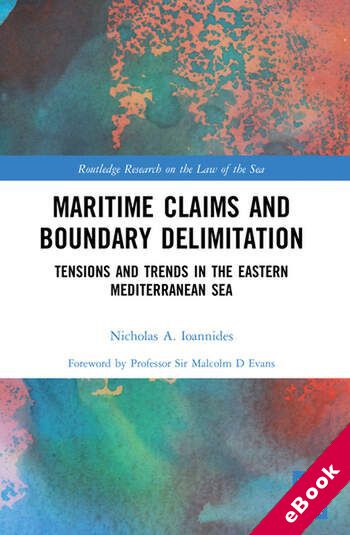
The device(s) you use to access the eBook content must be authorized with an Adobe ID before you download the product otherwise it will fail to register correctly.
For further information see https://www.wildy.com/ebook-formats
Once the order is confirmed an automated e-mail will be sent to you to allow you to download the eBook.
All eBooks are supplied firm sale and cannot be returned. If you believe there is a fault with your eBook then contact us on ebooks@wildy.com and we will help in resolving the issue. This does not affect your statutory rights.
This book delves into the major developments triggered by the hydrocarbon discoveries in the Eastern Mediterranean over the last twenty years, focusing on maritime boundary delimitation.
Examining the impact that the hydrocarbon discoveries have had on the application of the law of the sea rules by the East Med states, the book looks at the new trends concerning the implementation of the law of the sea in the region. The book analyses regional state practice in terms of maritime delimitation, namely the conclusion of bilateral agreements based on the law of the sea rules, both conventional and customary, reflecting the East Med states' willingness to cooperate in order to reap the benefits of the energy windfall. Alongside this analysis, an outline of the hydrocarbon discoveries and the pertinent maritime activities is given, as well as further coverage of the overlapping maritime claims and disputes between Greece, Cyprus and Turkey on one side, and Lebanon and Israel on the other. Moreover, the book examines the validity of maritime claims made by or through non-state entities in the region, namely the State of Palestine, the UK Sovereign Base Areas and the so-called 'Turkish Republic of Northern Cyprus' and their potential impact on the delimitation agreements already in place. The book argues that the East Med paradigm concerning the successful application of the pertinent norms in maritime delimitation proves that international law is resilient and capable of providing solutions in other turbulent regions around the globe.
This book will be of interest and importance to academics and students of international law, professionals in the oil and shipping industries, legal professionals and government agencies.